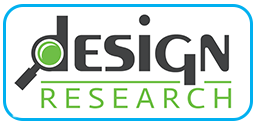“Anyone who launches new products will immediately appreciate the power of this resource to influence design direction, target appropriate price points, and select materials with high consumer appeal. What I love most is that it facilitates open and powerful discussions across the marketing, design and business teams. It minimizes reliance on “the gut feel” of just one individual in an organization and helps create a unified vision for success.”
Focus groups are in-depth questioning of a small number of consumers, customers, or employees in groups ranging in size from 4 to 10. In certain situations we have actually done much larger groups to address specific project requirements.
Focus groups can be used to generate a deeper understanding of the reasons behind attitudes and behavior as they relate to a topic. They are great for stimulating thinking in the new product development process. A benefit of focus group is that physical reactions (facial expressions, body language, etc) can be observed which are often very telling. Thus, focus groups are often utilized when there is stimulus to react to - such as a product prototype, a competitive array of products, proposed advertising campaigns, etc.
Like all qualitative research techniques, focus groups are directional in nature, offering guidance only and are rarely used in isolation. Thus, they should not be used to make major decisions. Final decisions regarding new products, marketing tactics, strategies, pricing, advertising, etc., can be made using focus groups combined with quantitative methodologies.

